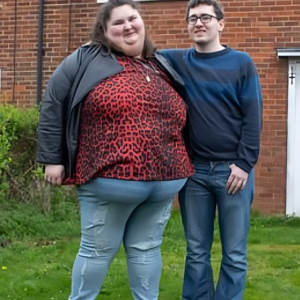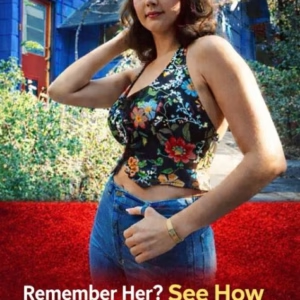We were gathered at my uncle’s house on their anniversary weekend. It was the twenty-fifth celebration for Uncle Arthur and Aunt Vivian, and the atmosphere in their spacious home in San Francisco, California, was warm and celebratory. The house was filled with family from both sides, spanning three generations, all brought together by the love of the anniversary couple.
The dinner had been wonderful, full of laughter and heartfelt toasts, and the evening was just starting to wind down into comfortable conversation. Vivian decided that the perfect capstone to the evening would be a nostalgic trip down memory lane. She excitedly pulled out an old, slightly scratched DVD case from a velvet box she kept on the mantle.
His wife decided to play their wedding video for 25 guests. She dimmed the living room lights and had Arthur queue up the old footage on their massive, modern television screen. The video flickered to life, showing the grainy, vibrant scenes of 25 years ago—the terrible 90s fashion, the slightly awkward dance moves, and the pure, young joy on their faces. It was a beautiful, familiar tribute to their enduring commitment.
The scene shifted to the interior of the church, and the music swelled as Vivian, young and radiant, started her slow, deliberate walk toward Arthur at the altar. Everyone watched, captivated, leaning forward to enjoy the most sacred, predictable moment of the ceremony. The sentimental music reached its peak, promising the perfect, emotional climax.
Right as she was walking down the aisle, the video suddenly went fuzzy. The screen erupted in a static-filled snowstorm, accompanied by a loud, high-pitched screech from the speakers. It wasn’t the usual end-of-a-tape fuzz; it was a violent, jarring disruption that felt entirely wrong and out of place. Vivian looked confused, rushing over to the DVD player to see if the disc had scratched.
Everyone freezes in complete shock as the video cuts to a grainy, close-up shot of Uncle Arthur furiously arguing with a man in an alleyway, not in a tuxedo, but in casual, panicked street clothes. The scene was dark, poorly lit, and utterly devoid of the wedding’s joyful atmosphere. The audio, though faint, picked up the harsh sounds of their heated exchange, clearly revealing Arthur’s frantic, agitated state.
The argument was raw and desperate, completely unfiltered. Arthur looked terrified, his face a mask of fear that none of us had ever seen before. He was shouting about money, specifically demanding a “return of the deposit” before he went inside, clearly implying that whatever he was about to do was reversible and tied to a substantial fee. The entire living room was plunged into a stunned silence, broken only by the harsh, amplified voices of the argument.
Vivian rushed to the TV, frantically trying to shut off the player, but the remote wouldn’t work, and the buttons on the DVD player seemed frozen. The footage continued to play, revealing the full, shocking details of the clandestine meeting. The man Arthur was arguing with was identified as Eddie, a notorious local character with a reputation for dealing in questionable favors and shady, black-market transactions.
Arthur kept repeating, “Eddie, it’s too late! I can’t go through with it. Give me back the seven grand now!” Eddie, the other man, was refusing, laughing and saying the “contract” was already signed. The scene ended abruptly with Arthur pushing Eddie against a wall in a desperate attempt to retrieve a small, dark object that Eddie was holding, a close-up revealing it to be a key.
Finally, the screen went black, and Vivian managed to turn off the sound, leaving the entire room in a state of bewildered, horrified silence. The anniversary celebration had just unearthed a terrifying, decades-old secret, a moment of pre-wedding crisis none of us knew existed. Arthur, who was standing frozen by the fireplace, had aged twenty-five years in the span of thirty seconds.
He stumbled, his face pale, and immediately rushed out of the room, fleeing the stunned silence and the accusation in every family member’s eyes. Vivian, though clearly devastated, was instantly defensive. She insisted the video must be a corrupted file, a malicious viral hoax, or a deeply unpleasant technical glitch in the old equipment.
The video, however, was clearly genuine, showing the younger version of Arthur in undeniable panic. The rest of the family slowly filtered out, muttering excuses, leaving only a few of us—myself, my sister, and Vivian—to face the disaster. We were all completely baffled. What could Arthur have possibly been paying seven thousand pounds for just minutes before his wedding? The questions felt too dark and complicated for a simple wedding video glitch.
Vivian was convinced Arthur was trying to buy something essential he had lost, maybe the wedding rings or the deed to their first house. I, however, had a feeling the truth was far more complex and tied to something Arthur desperately wanted to forget. I remembered my grandfather once mentioning that Arthur had almost ruined his life with a massive, undisclosed financial mistake right before his wedding.
I decided to stop speculating and find the original video producer, a small-time cameraman from the 90s named Mr. Chen, whose name was faintly visible on the damaged DVD label. It took two days, but I tracked down the old man who now ran a small, modern video editing business in a different city. He was initially reluctant to talk, citing client confidentiality.
When I explained the catastrophic cut and the alley scene, Mr. Chen finally confessed. He explained that he had recorded the argument entirely by accident. He had been setting up his equipment inside the church, but the wireless microphone he had given Arthur to wear for the vows had been turned on prematurely. Arthur, panicking, had run out into the alley to meet Eddie, completely forgetting the live microphone on his lapel.
Chen, an old-school professional, knew the footage was too sensitive. He had manually excised the clip from the final, edited wedding video that he gave to the couple. The astonishing truth was that the scene had been hidden on the master tape, but never destroyed. The old DVD player, suffering a mechanical failure at the exact point of the edit splice, had skipped the file marker and started playing the unedited master footage immediately following the end of the aisle walk.
But Chen also revealed a far more profound detail. He said Arthur had begged him, not to destroy the tape, but to hold onto the footage as a permanent record of his last mistake. Arthur didn’t want the truth to come out, but he wanted a constant, painful reminder of the choice he had made that day.
I drove home with this shocking knowledge, the full meaning of Arthur’s sacrifice finally dawning on me. Arthur hadn’t been buying something illegal; he had been buying back his reputation. I went straight to the dusty, empty attic where Arthur had fled. I found him sitting alone in the dark, clutching a small, worn bank statement.
Arthur finally confessed the full truth: before his wedding, he had foolishly invested his entire life savings, including money he borrowed from his parents and Vivian’s parents, into a disastrous, fraudulent stock scheme run by Eddie. He lost everything. He was meeting Eddie in the alley to beg for the return of his last seven thousand dollars, the emergency cash he needed to pay for the church and the reception hall, which he had promised Vivian was paid in full. The “key” Eddie held was the key to his safety deposit box, where the remaining cash for the venue was held.
Arthur had completely bankrupted himself and risked throwing away his last chance at happiness. When Eddie refused, Arthur had walked down that aisle with only $150 in his pocket, prepared to confess everything to Vivian immediately after the ceremony. But he couldn’t. He decided to spend the next 25 years quietly and meticulously rebuilding everything he had lost and working tirelessly to pay off his debts and prove his worth to Vivian.
I looked at the bank statement he held. It wasn’t an account full of money; it was a printed statement showing seven thousand dollars had been quietly transferred this week to an anonymous, local charity. I realized that on his twenty-fifth anniversary, he had finally settled the spiritual debt of his greatest mistake by anonymously giving away the exact amount he had foolishly lost all those years ago.
I brought Vivian up to the attic. She listened to his whole tearful confession. She didn’t get angry about the debt or the years of secrecy. She walked over to him, hugged him tight, and simply said, “Arthur, I married you for the man you were, not the money you had.” She had always intuitively known about his deep-seated shame, but never the details.
The next day, surrounded by family, they renewed their vows. The greatest reward was the healing of their marriage, now completely stripped of its last, oldest secret. Arthur was finally free, and the accidental glitch on the video forced a truth that allowed their genuine, enduring love to shine through.
The life lesson was clear: A marriage isn’t built on the perfection of the ceremony, but on the courage to face and redeem your deepest past mistakes. The mistakes we keep secret out of shame often hold the key to the deepest levels of trust and forgiveness.
If you believe in the power of confronting old secrets to strengthen new bonds, please consider giving this story a like and sharing it! What secret mistake have you seen finally lead to true freedom?





